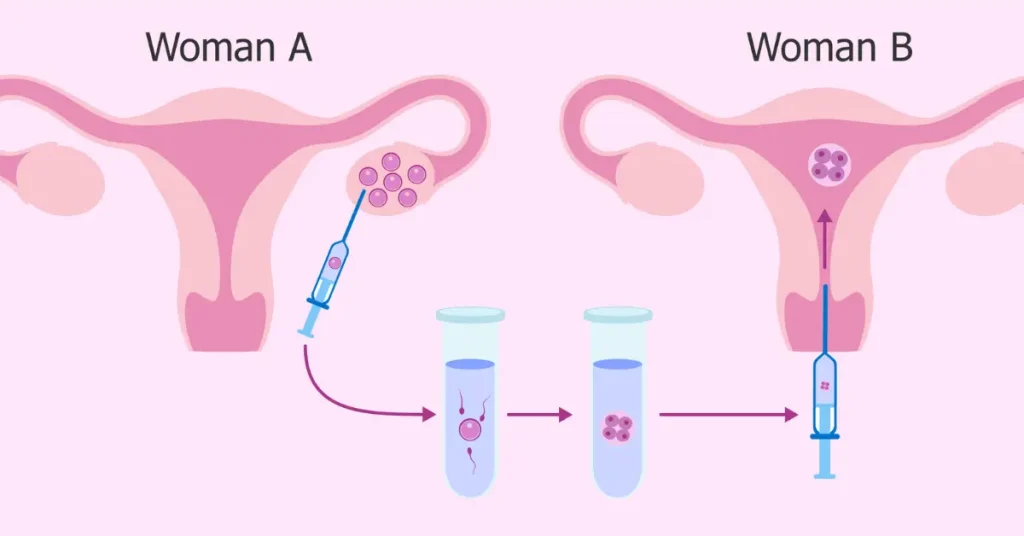Surrogacy often brings a lot of joy and happiness in the life of every party involved. Yet some situations usually act as a spoilsport in such joyous moments. One such situation is when the surrogate mother denies the custody of the child during surrogacy to the intended parents. While there are laws and regulations in every country to deal with such a situation, there are nations with no provisions in the same regard.
So, do you have any other alternative to deal with it or do you simply need to give up on the situation? In the following parts of this blog, we will discuss in detail the key concerns of many intended parents around. Moreover, we will talk about the ways to combat such circumstances like laws and regulations and custody of the child during surrogacy.
Get familiar with the local laws and regulations
First up, you must research and analyze the laws and regulations of a particular country or state. This can help you stay wary of any such unwanted circumstances in advance. That said, at the beginning of a surrogacy program, legal contracts are ordinarily drawn up by the intended parents and the surrogate mother.

These contracts lay out the rights and duties of all parties included. Also, when a surrogate denies guardianship, it’s key to refer to these legal understandings and contracts. Frequently, these contracts incorporate clauses that address potential disputes, including custodial issues. Hence, understanding the legal system is the primary step in settling any such dispute in the right manner possible.
Connect with a legal professional
You may feel dejected and confused while witnessing any such situation. Yet, given the legal complexities, looking for expert advice from an attorney who specializes in family and surrogacy law is helpful in such a situation. That said, a legal professional agency can give guidance on the enforceability of the surrogacy contracts and the rights of each party beneath the law. Moreover, this would remain vital, as laws for surrogacy can change essentially from one country to another.
This is where it is important to check and verify the expertise and knowledge of the professional prior. Also, see if they have dealt with such cases in the past or have experience in such situations. By doing that, you can easily make out whether or not they would be helpful in your respective case.
Check if mediation is possible in this case

Moreover, this includes a neutral third party that can help the intended parents and the surrogate reach an agreement. That said, Intervention can be less antagonistic and more cost-effective than court procedures.
Moreover, counselling services for both parties can be accommodating in overseeing the emotional aspects of the overall dispute.
Always keep the interest of the child on top
Do know that it’s always about the child and one should think in the same direction. That said, in any dispute about custody of the child during surrogacy, the child’s best interests are foremost. This guideline is additionally connected to cases including surrogacy. Moreover, the intended guardians, surrogates, and legal experts ought to consider what is best for the child’s welfare and future. This incorporates considering the child’s emotional, physical, and mental needs.
Moreover, you can talk to the surrogate mother in person to deal with any such dispute without getting into legal fights and court procedures.
Taking the surrogate’s concerns into consideration
Before you proceed with any legal step, understand Understanding why the surrogate is denying the custody of the child. Do know that there can be some medical or emotional or other reasons behind her choice. Also, a compassionate and open talk might offer assistance in understanding her point of view and finding a commonly satisfactory arrangement.
 Opting for the court mediation and counsellors
Opting for the court mediation and counsellors
While nothing else works, court mediation will remain as your last resort. That said, the court will consider the legal agreements, the laws of the state or nation, and the leading interests of the child. Moreover, it’s critical to be prepared for a possibly long and expensive legal process in the same regard.
Also, such debate can be emotionally depleting for all parties included. So, looking for proper counselling is fitting to manage the stress and emotional turmoil. That said, these support groups can also offer consolation and experiences from others who have been in comparative circumstances.
Avoiding the possibility of any such event
To anticipate such disputes, it is significant to work with trustworthy surrogacy agencies and legal experts from the start. That said, they can guarantee that all parties have a clear understanding of the agreements and the surrogacy process. Moreover, mental screening and counselling for surrogates, as well as building a great relationship with the surrogate, can offer assistance in staying wary of such debates.
Following the social ethics
Understanding the social and moral viewpoints of surrogacy is also the key. That said, diverse societies may have changing viewpoints on surrogacy, which can impact the perspective and choices of the parties included. Hence, you must consider these aspects from the start.
Staying aware and open with your thought process
This circumstance moreover raises questions about open thought processes and awareness concerning surrogacy. That said, supporting clear and reasonable surrogacy laws and educating the surrogate about surrogacy can help in eliminating the occurrence of any such situation.
Final words
When a surrogate mother denies custody of the child amid surrogacy, it’s a situation that requires proper thought and consideration. Also, the key steps to deal with such a situation include returning to lawful agreements, looking for legal support, endeavouring mediation, prioritizing the child’s best interface, understanding the surrogate’s viewpoint, and, in case required, turning to court mediation.
While doing that, also understand that emotional support for all parties is significant. Also, preventative measures, including exhaustive legal and emotional planning and building great connections, are imperative in mitigating such debate. That said, understanding the broader social and moral measurements can moreover give profitable bits of knowledge. As surrogacy becomes more predominant, the need for clear laws, open awareness, and moral contemplations gets progressively critical in guaranteeing the well-being of all parties included, particularly the children born through surrogacy.















